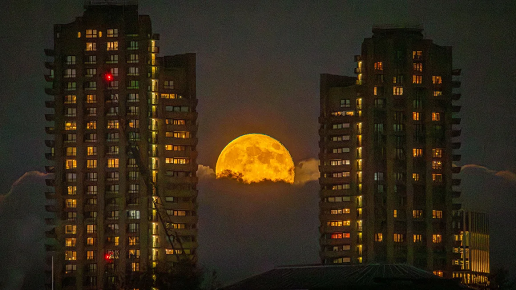Eating rice dumplings (zongzi) at the Dragon Boat Festival is a long-standing habit in Chinese culture that dates back thousands of years. Guangdong, Fujian, and Hainan immigrants introduced Chinese culture and traditions to Southeast Asian nations more than a century ago.
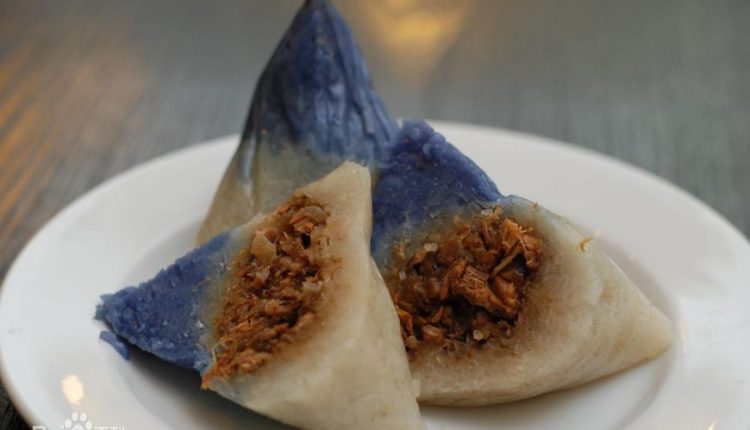
The "Nyonya Rice Dumpling" is unique to Malaysia and Singapore.Photo reproduced from 大馬生活 Facebook
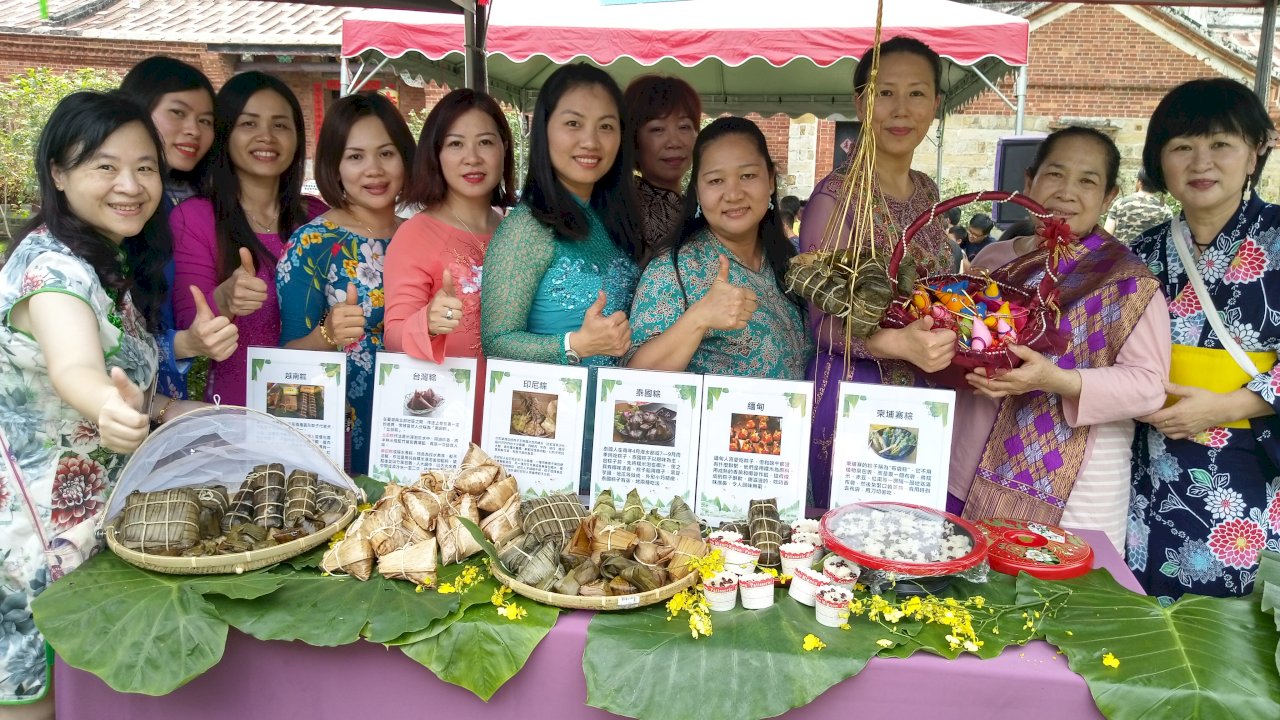
Combined with the local customs, the rice dumplings in Southeast Asian countries have their own characteristics.Photo reproduced from Luzhou District Office Facebook
[Taiwan Immigrants’ Global News Network] compiles and introduces to readers the distinctive rice dumplings of Southeast Asian nations.
The two nations in Southeast Asia with the greatest populations of Chinese people are Singapore and Malaysia, where Chinese culture is still more prevalent. The "Nyonya Rice Dumpling" is unique to Malaysia and Singapore. The typical example of the blending of multi-ethnic cultures in the Singapore-Malaysia region is this type of Nyonya rice dumpling, which is formed of glutinous rice colored a stunning blue with butterfly pea flowers (Blaue Blume), filled with pork, shiitake mushrooms, candied melon, etc., and wrapped in pandan leaves.
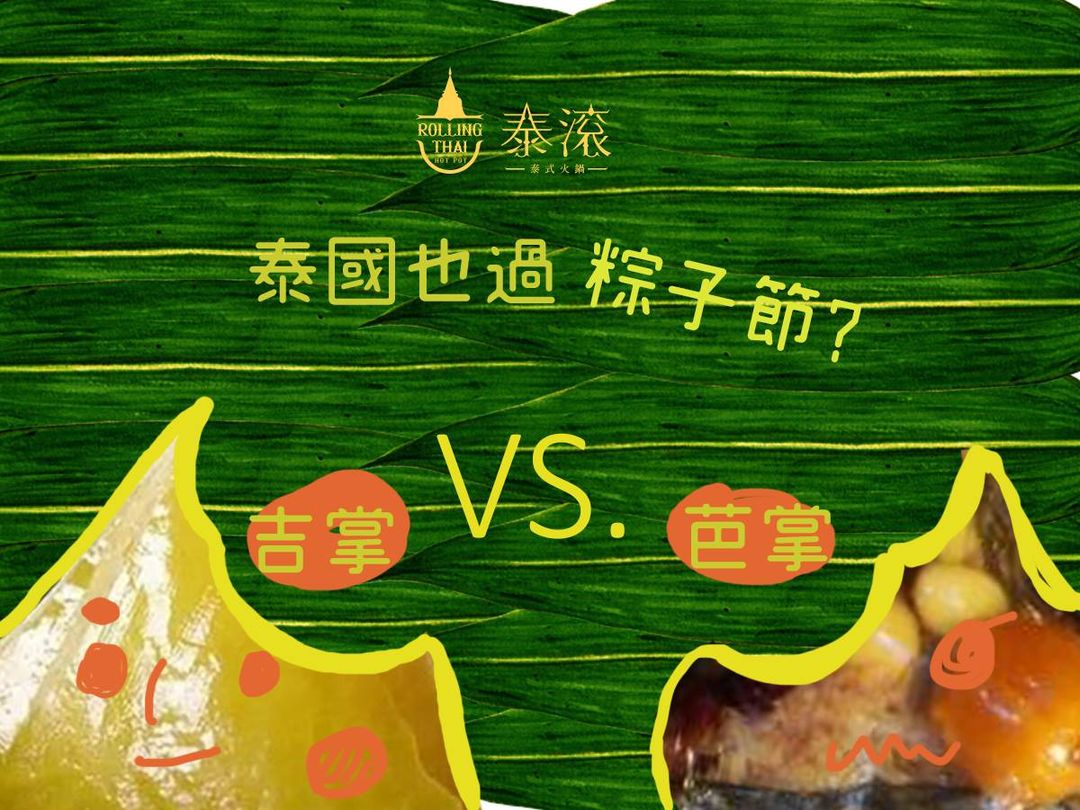
Thai rice dumplings and sweet rice dumplings are pronounced similar to Taiwanese.Photo reproduced from泰滾 Rolling Thai 泰式火鍋 Facebook
The name "Ba Chang Festival" for the Dragon Boat Festival in Thailand is a transcription of the Chaozhou dialect. The Taiwanese meat rice dumpling is extremely similar to "Ba Zhang" (บ๊ะจ่าง). The Taiwanese Gan-Shui (Alkaline) rice dumpling and the Thai sweet rice dumpling, "Kee Chang" (กี่จ่าง), both pronounced similarly.
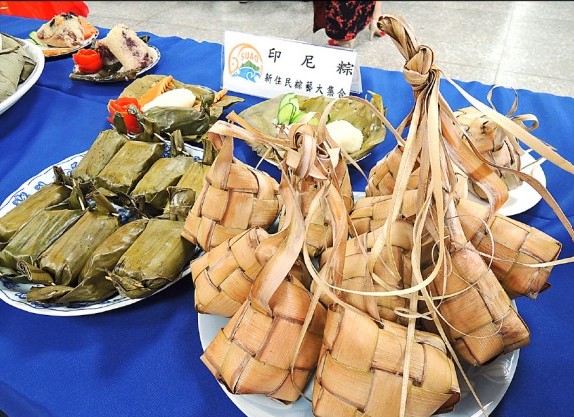
There are many flavors of rice dumplings in Indonesia. The long strip on the left is Lemper, and the one on the right is ketupat eaten during Eid al-Fitr.Photo from Taiwan Immigrants’ Global News Network
In Indonesia, the Dragon Boat Festival is known as "Hari Raya Bakcang," and the word "Bakcang" for rice dumplings is the Hokkien pronunciation of "meat rice dumpling." Japonica rice, which is easier to digest than sticky rice, is used to make rice dumplings in Indonesia. There are also Indonesian rice dumplings (Ketupat), which are woven into square net boxes with coconut leaves and consumed after Eid al-Fitr, and Muslim rice dumplings (Bakcang Halal), which are Halal-certified and suitable for consumption by Muslims.
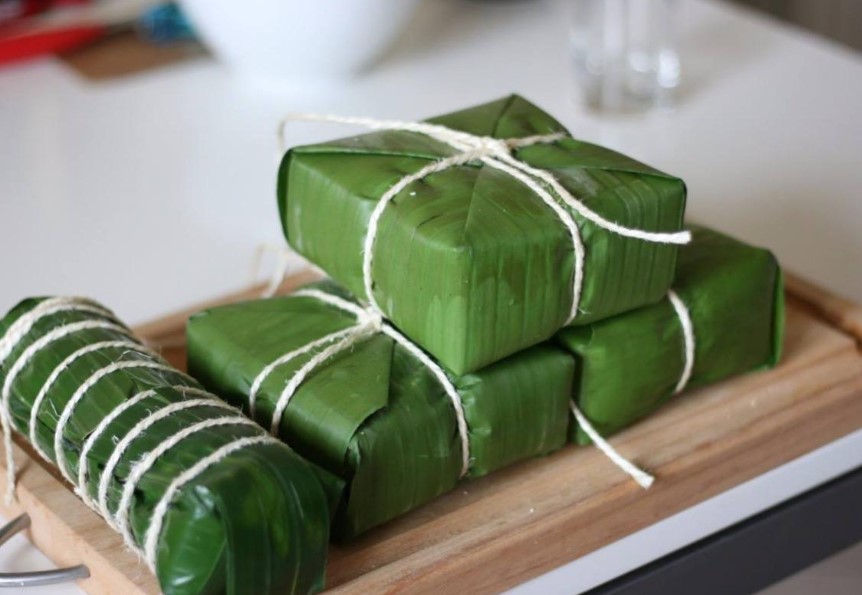
Vietnamese people consume rice dumplings. Vietnamese rice dumplings come in two shapes—circular and square.Photo from Taiwan Immigrants’ Global News Network
Not during the Dragon Boat Festival, but rather during the New Year, Vietnamese people consume rice dumplings. Vietnamese rice dumplings come in two shapes—circular and square—and are stuffed with glutinous rice, mung beans, and pork. They are then wrapped in banana leaves.
Read more: Thai influencer Alizabeth’s relatives visit Taiwan and praises Taiwan as a paradise for vegetarians
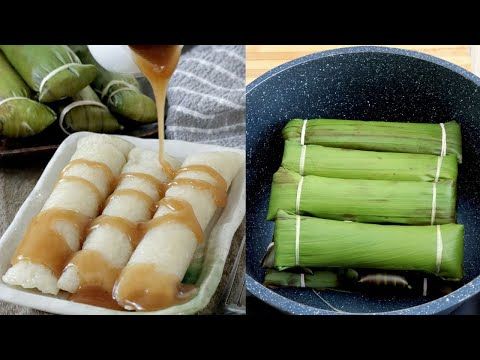
For Filipinos, Suman is a coconut milk-soaked sweet rice dumpling, is a main Christmas dish.Photo reproduced from @kawalingpinoy
Suman is a coconut milk-soaked sweet rice dumpling that is wrapped in banana or palm leaves. It is cooked until the texture is soft and sticky. When consumed, it is also covered with sugar. For Filipinos, it is a main Christmas dish.





